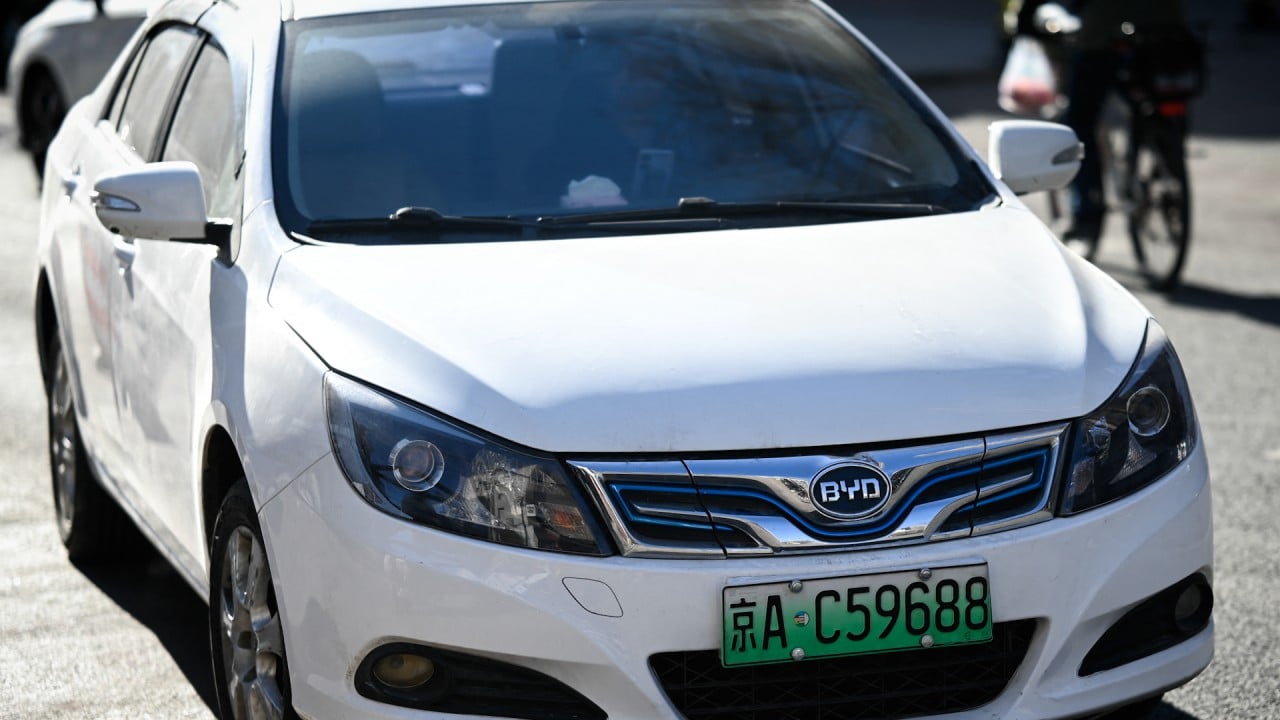
China’s BYD launches third EV model in India, starts work on Brazil plant as it revs up overseas expansion
- The Warren Buffett-backed carmaker has priced the Seal sedan in India from US$49,468 onwards
- The Shenzhen-based carmaker has started construction on a US$680 million plant in Brazil’s Bahia state, with operations likely to commence by end-2024
The company’s push into potentially huge overseas markets coincides with a discount war in mainland China, where fiercer competition is seen hurting carmakers’ profitability amid narrowing margins.
The Shenzhen-based carmaker, backed by Warren Buffett’s Berkshire Hathaway, is now taking orders for the Seal, a premium battery-powered sedan with a starting price of 4.1 million rupees (US$49,468) in the South Asian nation, a move to display the company’s technology and quality, it said in a statement.
In Brazil, BYD officially started work on its first plant in South America, according to Reuters on Wednesday.
“We are confident that the BYD Seal, a luxurious sports sedan, will provide our customers in India with a premium and unforgettable driving experience,” Sanjay Gopalakrishnan, senior vice-president of BYD India, said in the statement on Tuesday.
BYD’s Brazilian plant in the northeastern Bahia state will see an investment outlay of US$620 million. It will have an annual production capacity of 150,000 units and will be operational as early as the end of 2024.
BYD delivered 3.02 million pure electric and plug-in hybrid vehicles to customers at home and abroad in 2023, a year-on-year increase of 62.3 per cent.
Most of its sales were in mainland China, with only 242,765 units, or 8 per cent of the total, exported. But the exports represented a 334 per cent jump over 2022.
China EV war: BYD, Xpeng up the ante as they slash prices to arrest sales slump
Soochow Securities said in a research note on Tuesday that rising exports would drive a 20 per cent year-on-year sales rise for BYD in 2024, which is expected to hit 3.7 million units.
“Foreign markets which lack an electric-car supply chain are the key territories targeted by BYD and its Chinese rivals,” said Gao Shen, an independent analyst in Shanghai. “BYD appears to be very aggressive in going global now that overall demand for EVs at home shows signs of slowing.”
Last year, China surpassed Japan as the world’s largest vehicle exporter, buoyed by its rising design and manufacturing heft.
Overseas shipments, which included buses and lorries, jumped 58 per cent year on year to 4.91 million units, beating Japan’s exports of 4.42 million units.
In China, BYD has spearheaded a new round of price reductions last month, with a clutch of domestic rivals following suit.
BYD aspires to take on Ferrari, Lamborghini with a US$233,000 super EV
On Wednesday, BYD launched the basic version of the revamped Seagull at a price 5.4 per cent lower than the outgoing model at 69,800 yuan. This was preceded by a 11.8 per cent cut in the starting price of the Yuan Plus crossover at 119,800 yuan on Monday.
On February 18, the EV giant launched an updated model of the Qin Plus DM-i plug-in hybrid at a starting price of 79,800 yuan, 20 per cent less than the previous edition.
Cui Dongshu, general secretary of the China Passenger Car Association, said last month that most carmakers were likely to continue offering discounts to retain market share, which could reshape the domestic market.
Fitch Ratings warned last November that EV sales growth could slow to 20 per cent in China in 2024, compared with 37 per cent last year, amid economic uncertainties and intensifying competition.


